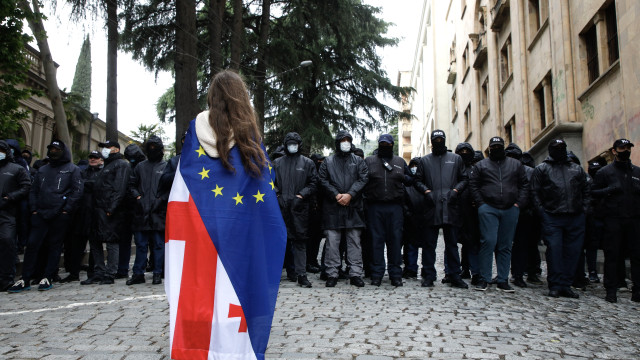On May 14, the Georgian parliament passed the "foreign influence" law. This happened despite thousands of protests in the capital Tbilisi and warnings from the EU that the adoption of the law would hinder Georgia's European integration, CNN reported.
The new law will require organizations that receive more than 20% of their funding from abroad to register as "agents of foreign influence" or face horrendous fines. Opponents say the legislation is modeled after similar laws in Russia, which the Kremlin has used to further suppress opposition and civil society.
The law was approved by 84 deputies who voted "for" against 30 "against".
Many Georgians fear that the law on foreign agents will be used in the same way as in Russia. Georgia's parliament has 10 days to send the bill to President Salome Zurabishvili, who has already threatened to veto it. Zurabishvili has two weeks to do so, but parliament can reject her objection with a simple majority.
The bill has become a cultural flashpoint in a country that, like Ukraine, sits between Russia and Europe. Opinion polls show that around 80% of Georgians want to join the EU, but Moscow's geopolitical orbit is proving difficult to leave.
Georgia applied to join the bloc in 2022 and was granted candidate status in December, a move seen as an attempt to reverse the former Soviet republic's tilt towards Russia. However, EU leaders have made it clear that passing the foreign agents bill would jeopardize Georgia's chances of joining.
The United States also expressed concern about the bill and the "backsliding of democracy" in Georgia.
The ruling Georgian Dream party, which pushed the law, hit back at criticism by saying the move would promote transparency and national sovereignty. But the party has long been suspected of pro-Russian sympathies, especially given that its founder, billionaire and former prime minister Bidzina Ivanishvili, made his fortune in the Soviet Union.
The passage of the bill sparked a furious reaction, including in parliament, where brawls broke out during the hours-long debates that preceded the law's passage. Similar scenes played out last month when an opposition lawmaker punched a key Georgian Dream member in the face, sparking a wider row.
Many pro-European Georgians remain angry over Russia's 2008 invasion and the fact that the Kremlin still occupies about 20 percent of Georgia's internationally recognized territory — about the same amount Russia occupies in Ukraine.
For about a month now, the capital Tbilisi has been closed for night protests. About 50,000 people came out on May 12 in the city of one million to protest against what they called the "Russian law".
"This is a Russian law. It is an exact copy of Putin's law, which was adopted a few years ago and then supplemented to crush civil society," Georgian President Zurabishvili said./BGNES
Georgia passed the Foreign Influence Act







